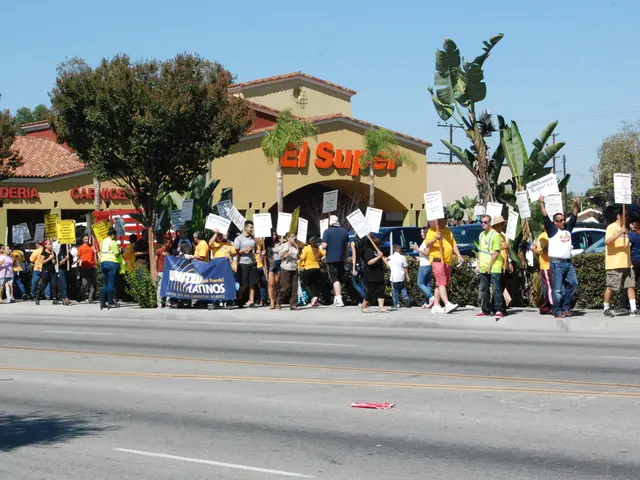AI and Innovators Tackle Food Waste, Boosting Economy and Climate
Addressing food waste is not only a moral imperative, given that 2.37 billion people lacked sufficient food in 2020, but also a smart economic move. A recent analysis of 700 companies by impact company SIRPLUS revealed that investing in reducing food waste can generate about $14 for every dollar spent.
SIRPLUS, based in Berlin, has set a remarkable example of the potential in this area. On August 19, they rescued and distributed a world record of 187,076 expired food items, including 75,000 vegan schnitzels. This feat demonstrates the significant economic benefits of reducing food waste, with the potential to generate substantial returns on investment.
Artificial intelligence is now being employed in many restaurant and hotel kitchens to help achieve this goal. By predicting demand and optimizing inventory, AI can significantly reduce waste and increase profits. Moreover, reducing food waste is one of the most effective ways to lower greenhouse gas emissions, according to Project Drawdown. This is particularly notable given that agriculture is the world's second-largest source of CO2 emissions.
With 40% of the world's food production either lost or wasted, the need for action is clear. Initiatives like SIRPLUS's record-breaking food rescue show that reducing food waste can be both economically beneficial and environmentally responsible. By embracing technologies like AI and promoting sustainable consumption practices, we can tackle food waste, feed the hungry, and protect our planet.
Read also:
- Senate Tillis under spotlight in North Carolina as IRA tax incentives remain uncertain
- projected growth for the natural acetoin market: $291.6 million by 2034
- Latest Edition of Bus-News Magazine Arrives for 2023!
- Testing the Camp Mode of the 2025 Tesla Model Y with Juniper's interior housing two kids, shockingly low CO2 levels were discovered.








